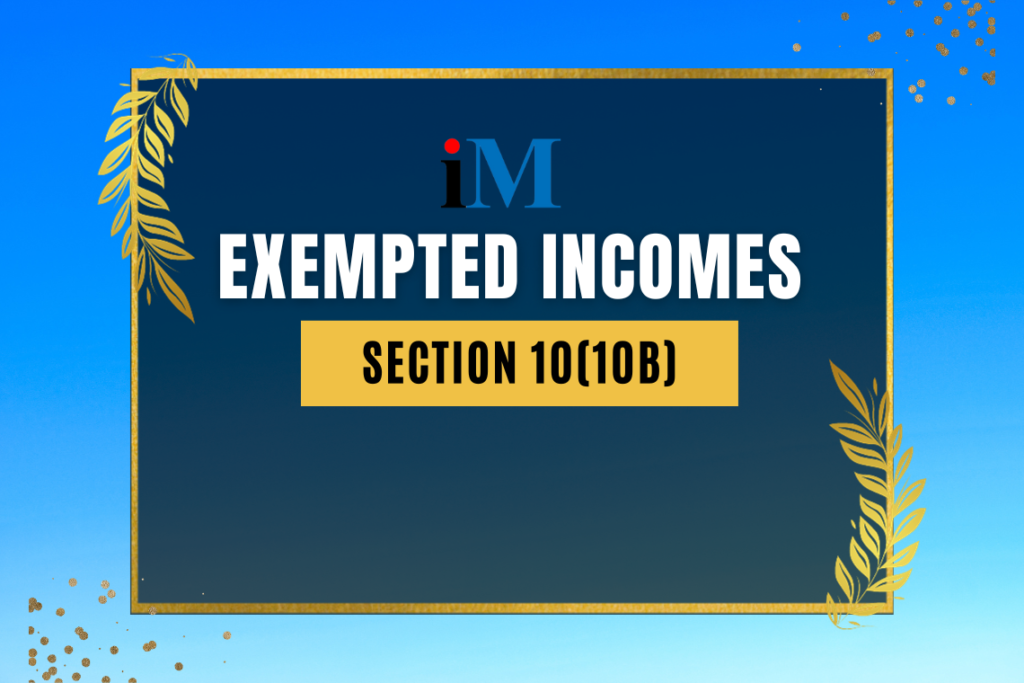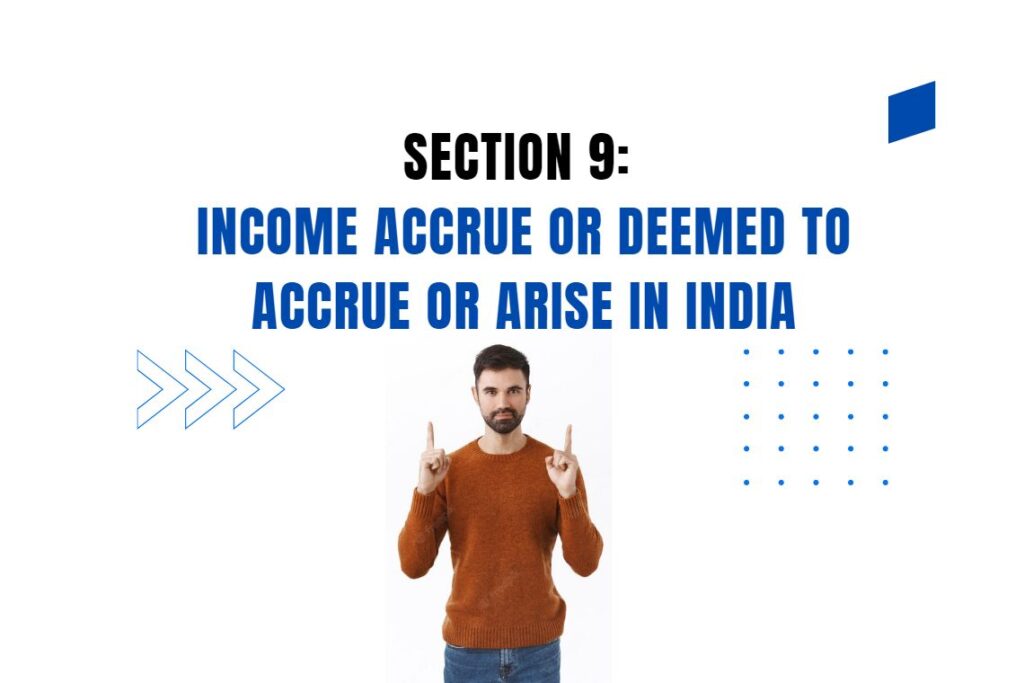Section 10(10B) of the Income Tax Act in India provides an exemption for compensation received by employees on retrenchment. This exemption is intended to provide relief to employees who are retrenched or terminated from their employment. Here are the key points related to Section 10(10B):
Any compensation received by a workman at the time of his retrenchment, under the Industrial Disputes Act, 1947 or under:
(a) any other Act or rules or any order or notification issued there-under; or
(b) any standing order; or
(c) any award, contract of service or otherwise,
shall be exempt to the extent of minimum of the following limits:
(i) Actual amount received;
(ii) 15 days’ average pay for every completed year of service or part thereof in excess of 6 months;
(iii) Amount specified by the Central Government, i.e. Rs. 5,00,000
Compensation received in excess of the aforesaid limit is taxable and would, therefore, form part of Gross Salary. However, the assessee shall be eligible for relief under section 89 read with rule 21A.
| 1. Where retirement compensation is received by a workman in accordance with any scheme which the Central Government having regard to the need for extending special protection to the workman in the undertaking to which such scheme applies, has approved in this behalf, the entire amount of compensation so received shall be exempt under section 10(10B).
2. Where retrenchment compensation received by a workman exceeds the amount which qualifies for exemption under the new clause, he will be entitled to relief under section 89 read with rule 21A of the Income-tax Rules, in respect of such excess. |
Conditions:
To avail the exemption under Section 10(10B), the employee must meet the following conditions:
- The employee must be a workman as defined under the Industrial Disputes Act, 1947.
- The employee must be retrenched from his employment.
- The compensation must be received by the employee on or after the 1st of April, 1976.
- The employee must not have received any gratuity from the employer.
Examples:
Here are some examples of cases where Section 10(10B) of the Income Tax Act, 1961 applies:
- A workman is retrenched from his job and receives a compensation of Rs. 5,00,000. This entire amount is exempt from income tax.
- A workman is retrenched from his job and receives a compensation of Rs. 10,00,000. In this case, the amount of compensation that is exempt from income tax is Rs. 5,00,000 (the lower of Rs. 5,00,000 and the actual amount received). The remaining amount of compensation, i.e., Rs. 5,00,000, will be taxable as salary.
- A workman is retrenched from his job and receives a compensation of Rs. 3,00,000. In this case, the entire amount of compensation is exempt from income tax, as it is less than the Rs. 5,00,000 limit.
- A workman is retrenched from his job and receives a compensation of Rs. 7,00,000. In this case, the amount of compensation that is exempt from income tax is Rs. 5,00,000 (the lower of Rs. 5,00,000 and the actual amount received). The remaining amount of compensation, i.e., Rs. 2,00,000, will be taxable as salary.
Points to Note:
- The exemption for compensation on retrenchment is available only to employees who are retrenched in accordance with the provisions of the Industrial Disputes Act, 1947.
- The exemption is not available to employees who are voluntarily resigning from their jobs.
- The exemption is available only for compensation on retrenchment received from the employer. It is not available for compensation received from any other source.
- The exemption for compensation on retrenchment is available only to workmen. It is not available to self-employed individuals.
- The exemption is available only for compensation on retrenchment received under the Industrial Disputes Act, 1947. It is not available for compensation on retrenchment received under any other law.
- The exemption is available for compensation on retrenchment received from any employer, whether government or non-government.
- The aggregate amount of compensation on retrenchment exempt from tax under Section 10(10B) cannot exceed Rs. 5 lakh, even if the workman receives compensation on retrenchment from multiple employers in the same or different years.



![Residential Status [Sections 5 to 9B]](https://incometaxmanagement.in/wp-content/uploads/2023/09/Residential-Status-Sections-5-to-9B-1024x683.jpg)

![EXEMPTED INCOMES [Section – 10, 10AA, 11 to 13A]](https://incometaxmanagement.in/wp-content/uploads/2023/09/Exempted-Incomes-Section-10-1024x683.jpg)

![Income of an Electoral Trust shall be Exempt [Section 13B]](https://incometaxmanagement.in/wp-content/uploads/2023/10/61-Exempted-Incomes-Section-13B-1024x683.png)
![Incomes of Political Parties [Section-13A]](https://incometaxmanagement.in/wp-content/uploads/2023/10/60-Exempted-Incomes-Section-13A-1024x683.png)
![Special Provisions in respect of Newly-established Units in Special Economic Zones (SEZ) [Section-10AA]](https://incometaxmanagement.in/wp-content/uploads/2023/10/59-Exempted-Incomes-Section-10AA-1024x683.png)
![Exemption in respect of income chargeable to Equalization Levy [Section 10(50)]](https://incometaxmanagement.in/wp-content/uploads/2023/10/58-Exempted-Incomes-Section-1050-1024x683.png)
![Income of a Developmental Financing Institution (DFI) to be Exempt [Section 10(48E)]](https://incometaxmanagement.in/wp-content/uploads/2023/10/57-Exempted-Incomes-Section-1048E-1024x683.png)
